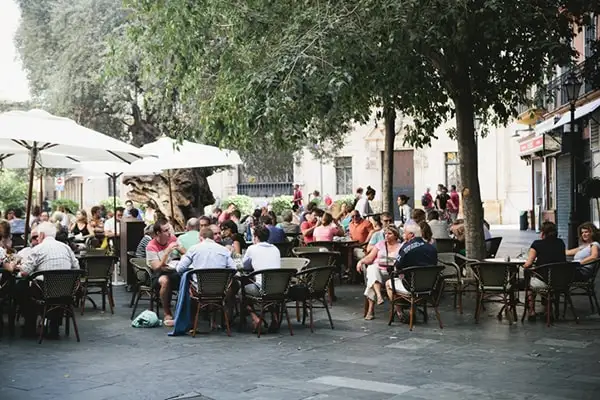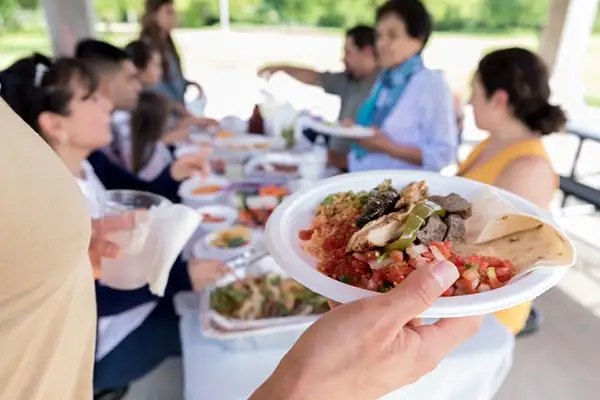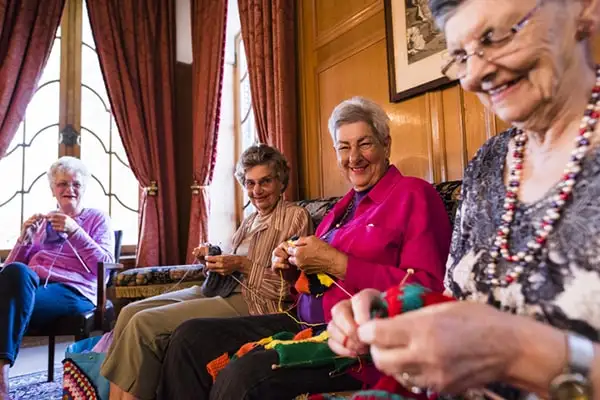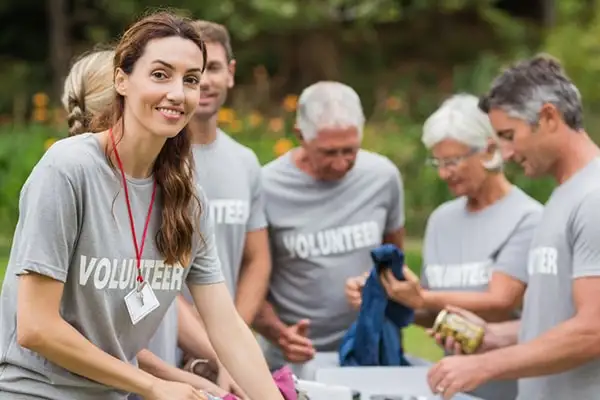If you plan to retire abroad on a fixed income, you may wonder about the expense of socializing. Can you afford to go out? Or will you be stuck at home?
It’s a good question to consider. But you’ll probably be okay. Because with just a little creativity, initiative, and planning, you’ll find plenty of ways to enjoy the company of others, even if your social budget is tight.
How specifically? Following our 10 examples.
1. Meet for a Coffee Instead of Dinner

Going out to dinner with friends is enjoyable. But, if the main purpose of regular get-togethers is to visit and chat, why not meet for a coffee and save dining for special occasions.
In Uruguay, it's common for friends to meet in the afternoon around 5 p.m. for merienda—a time for coffee or tea and a light snack (dinner comes later in the evening).
While in Medellin, Colombia, I joined a group of retired expats who socialize over coffee at the same cafe, on the same days, at the same time. Anyone in their group who feels like visiting can just show up.
2. Start a Book Club
Do you like to read books and discuss them? If so, consider starting a book club.
If you decide to go ahead, the first step is deciding the types of books your group will discuss. Will you focus on a certain genre, or will it be more general?
Finding members for your book club can be as easy as announcing it on a local expat Facebook page or posting it as an event on Meetup.com.
Good places to meet include cafes and shopping-center food courts. If your group gets large, look into using a room someplace like a community center, school, or church.
As far as how often to meet, most book clubs gather once a month.
3. Play a Game

Since ancient times, people of all social rank have enjoyed games. The competitive element makes the interaction stimulating. And in most cases, it doesn’t cost a penny to play.
In Uruguay’s Department of Rocha (a rural coastal area), I spoke with English-speaking expats who gather for a board game or card game several evenings per week in the winter. They meet in the common room of a local hostel and play in front of a big fireplace.
A retired expat from the U.S. I met in Montevideo, Uruguay, enjoys spending her summers at Pocitos Beach where she plays bochas (bocce ball) with locals.
4. Begin a Language Exchange
A language exchange is a trade. You help a local practice English and the local helps you practice their native language. It’s a way to mix meeting new people with language practice.
For intermediate and advanced language learners, a group language exchange enables you to practice conversation skills with a variety of native speakers.
A one-on-one meeting can work for language learners at different levels. For example, let’s say you’re an expat in a Spanish-speaking country. And your partner’s English is much better than your Spanish. If that’s the case, you might ask your partner to quiz you on a list of vocabulary words you’re learning. And your partner may ask you to help with conversation practice.
5. Organize a Potluck

A potluck is a type of cooperative meal. Each person (or couple or family) attending brings a dish to share. It’s an interesting way to connect with others over food. And it costs less than dining out.
A retired expat couple I met in Tarija, Bolivia, tell me about potlucks they enjoy with their local church group: They usually meet outdoors in a park or campground. Everyone brings their own plates, silverware, serving dish, serving utensils, and something to drink. If it's a barbecue, each person (couple or family) brings meat for themselves and a side dish to share with the group.
6. Create a Walking Club
A walking club enables you to enjoy time with others while getting your exercise. It also helps motivates you and other club members to walk regularly.
Starting a walking club can be as simple as discussing the idea with friends and neighbors. Then, when you find a few interested people, work out the details of when, where, and how far to walk.
In Montevideo, the most popular place to walk is the rambla—a 13-mile-long waterfront promenade that runs the full length of the city.
In Medellin, Colombia (along the Golden Mile in El Poblado neighborhood), they close a couple of lanes to vehicles on a main Street (Carrera 43A) on Sunday mornings for walking, running, and bicycling.
To walk without street traffic every day in Medellin, meet your walking friends at El Tesoro shopping mall. It’s where you find a circuit open to walkers every morning between 5 a.m. and 10 a.m.
7. Set up a Craft Group

A craft group mixes socializing with craft making. Popular crafts for groups include knitting, card making, block-printing, and jewelry making.
Your craft group can be as casual as opening your home to group members—providing a place to work on individual projects while trading craft notes and chatting.
Or it can be more formal, with dues and bookkeeping, for groups that want to pool funds to buy materials in bulk, rent a work space, or share specialized tools
8. Join a Worship Group
Besides gathering for worship, many faith groups also organize socials and service projects—offering a variety of ways to connect with others who share your faith.
In many cities popular with expats, you find English-speaking churches. An example in Uruguay is Christ Church. It's a non-denominational Christian church in the Montevideo community of Carrasco.
Some expats I’ve met in Latin America join local Spanish-speaking worship groups. It enables them to form ties with local families and provides an incentive (and often help) to learn Spanish.
9. Volunteer

In much of the world, you’ll find volunteer groups that can use helping hands. It’s an opportunity to work with others serving in the community.
Oftentimes, a good way to find a volunteer group in Latin America is through a Spanish language school. That’s because many who come for Spanish classes, stay and do volunteer work afterward as a way to bolster their new-learned language skills. So, many language schools are familiar with (and can often provide introductions) to reputable volunteer groups.
While visiting Peru, I met an expat working with Volunteers Peru. It’s an NGO that can match you with local volunteer opportunities in Arequipa.
10. Form a Cooking Club
If you love your time in the kitchen, a cooking club is a way to interact with others who share your passion.
You can organize a cooking club in a couple of ways. One involves gathering with a few friends at home to make and enjoy a meal together. With this type of cooking club, it’s common for members to take turns hosting the group, choosing a menu, and assigning tasks.
Another type of cooking club is a group that joins forces for occasional scaled-up culinary projects like canning or holiday baking.
For either type of cooking club, ingredients can be divided up for participants to buy and bring. Or you can select a designated shopper to get everything, with other members contributing their share of the costs.
Related Articles
Amazing Tips on Retiring Overseas from Expat Experts
